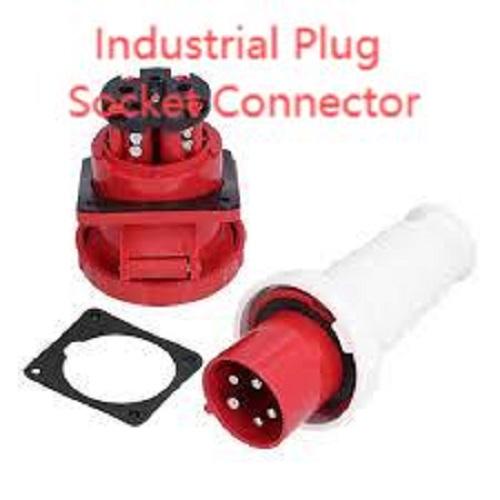Nante Industrial Surface Mounted Socket Durable Serviceable Design

When design teams lock down exterior electrical layouts, specifying the correct Industrial Plug Socket Connector during schematic design avoids costly retrofits, and choosing the proper mounting, sealing, and access options at that stage prevents premature field failures. It is equally important that installation crews understand the specific requirements of the Industrial surface mounted socket — substrate anchoring, strain-relief routing, and maintenance clearances — so the assembly remains serviceable and safe for years.
Site profiling and substrate preparation
Begin every project with a clear map of installation locations and their substrates. Concrete walls, metal cladding, timber facades, and masonry each demand different anchor designs and backing plates. Record exposure to spray, frequent washdowns, salt air, and potential mechanical impacts; these data points guide decisions on fastener metallurgy, backing reinforcement, and gasket compression allowances. A good substrate plan also includes anticipated cable entry routes to avoid later conflicts with structural elements or insulation layers.
Material selection and corrosion mitigation
Material choice underpins longevity. For coastal or chemical environments, specify stainless-steel enclosures and fasteners with matched metallurgy to prevent galvanic corrosion. In UV-exposed installations, use UV-stable polymer housings or powder-coated aluminum with certified surface preparation. Interior hardware—terminals, screws, and bus bars—should have protective platings to minimize contact degradation. Surface finishes matter: conversion coatings and long-life topcoats significantly extend service life compared with untreated steels.
Sealing systems and cable-entry best practices
An enclosure’s weatherproofing is only as reliable as its cable entries. Use removable gland plates that accept a range of cable diameters and permit future additions without cutting holes; specify elastomer compounds compatible with local chemical exposure and temperature ranges. Partitioned entries prevent seal pooling when many conductors pass through a single flange. Maintain minimum bend radii, provide proper strain relief, and route conductors away from gasket compression faces to preserve ingress protection over multiple maintenance cycles.
Nante modular mounting and retrofit-friendly designs
Choose families of surface-mounted products that support modular inserts and easy servicing. Nante’s platform-style approach uses removable front bezels, pre-tested gland modules, and standardized internal mounting rails that speed installation and simplify spare-part stocking. Modular inserts allow power, protection, or communications modules to be replaced without breaching the main seal — a major advantage for long-lived installations that will be upgraded with new technology over time.
Thermal planning, surge protection, and electrical segregation
Thermal management is essential when placing active components inside compact enclosures. Keep heat-generating devices isolated from sensitive electronics and provide conductive mounting surfaces or heat spreaders. Reserve space for surge protective devices and fuses so they can be factory-installed without compromising sealing. Maintain physical segregation between power and control wiring to reduce interference and ease future troubleshooting.
Mechanical resilience and anti-vandal measures
Design mounting flanges and fasteners to suit the mechanical risks of each location. Use captive fasteners and reinforced lids in high-traffic or vandal-prone areas. For pole- or pedestal-mounted units, anti-rotation bosses and vibration-resistant fixings protect terminals from fatigue. Recessed fixings and impact-resistant lips reduce accidental damage while maintaining a clean, unobtrusive exterior.
Commissioning, verification, and documentation protocols
A well-specified product still requires correct installation to perform. During commissioning verify uniform gasket compression, correct gland torques, and terminal torque values. Perform a practical ingress test—controlled spray or visual inspection—where safe and appropriate. Document installation parameters including gland sizes, torque settings, and orientation; keep photos of cable entries and mounting details to guide future maintenance teams.
Spare parts, service planning, and total cost of ownership
Standardize on a limited set of gland plates, gaskets, and captive fasteners across projects to simplify logistics. Maintain a small spare-kit on site to reduce mean time to repair. Evaluate procurement options based on total cost of ownership, factoring in likely maintenance intervals, spare lead times, warranty terms, and supplier support rather than simply unit price.
Procurement diligence and supplier validation
Request IP/IK test reports, material declarations, and witnessed assembly certificates from suppliers. Factory bench-testing of configured assemblies reduces commissioning surprises. Choose vendors who publish clear installation guides and provide batch traceability for critical components.
Selecting a surface-mounted socket family that matches substrate, environment, and service expectations ensures safer, more maintainable power distribution over decades. For product families, detailed datasheets, and technical resources, visit https://www.nante.com/news/industry-news/what-is-industrial-plug.html
- Art
- Causes
- Crafts
- Dance
- Drinks
- Film
- Fitness
- Food
- Juegos
- Gardening
- Health
- Home
- Literature
- Music
- Networking
- Other
- Party
- Religion
- Shopping
- Sports
- Theater
- Wellness
